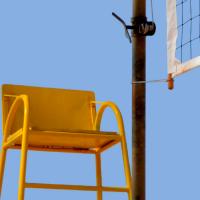
What if the UK no longer has member-state status? Part. 2
As seen in the previous article, it is much quicker to get a declaration of enforceability than obtaining a full exequatur judgment, which is mandatory for non-EU judgments to be recognized and enforced in France.
The enforcement of non-EU judgments in France
The matter is more complicated for non-EU judgements, which do not have similar authority and come under scrutiny from the French judge.
Is it possible to enforce foreign, non-EU judgments in France?
Yes, but not directly and not automatically. The party who is seeking to enforce a foreign judgment has to obtain a special order from the French Judge, ruling that the foreign judgment has legal force within its territory – the “exequatur”. The “exequatur” is obtained after two-sided proceedings before the locally competent French Civil Court.
How to start these proceedings?
The application must be presented by an “avocat” under the form of a fully motivated summons (“assignation”), to be served on the Defendant. The application must show that conditions applicable to the granting of exequatur are met. Said conditions depend on the country in which this decision has been rendered: bilateral or multilateral conventions may be applicable.
Are there any “default conditions” when no such convention exists?
Yes, these have been clarified by caselaw*:
- Jurisdiction of the foreign judge, based on the link of the dispute with the judge.
- Compliance with the legal and procedural international public policy
- Absence of fraudulent evasion to the law
If any of the following conditions (which are thoroughly examined by the French judge, in light of rich caselaw) is not met, the French judge will refuse to recognize and enforce the foreign decision.
Must the foreign judgment be final before being granted the exequatur?
Yes. The judgment must have the force of res judicata; i.e. no appeal, recourse or challenge is possible against it. However exequatur proceedings may be started before this, and stayed until that time. Provisional measures may be granted as well (if applied for, by your French counsel).
Are there any documents that must be provided in connection with an application for enforcement?
- An original copy of the foreign judgment. Legalisation thereof may be necessary.
- A sworn translation if the judgment is not in French.
- Evidence that the judgment has been duly notified to the defendant (service documents)
- Evidence of the enforceable nature of the judgment into the English legal order, even if provisional (in practice, statement or opinion of legal experts).
How long does it take to enforce a foreign judgment in France?
There is no simple answer, as it depends on the case and its complexity, and on the caseload of the competent Court to be filed with (varies locally). A straight-forward case presented before an uncongested Court may take 6 months and up to another 2 years before the exequatur judgment is rendered.
Common law specificities, unknown to civil law systems, might cause interpretation problems with regard to condition #2 (conformity with international public order), resulting in time-consuming judicial debates.
An appeal against the exequatur judgment is always possible, and may stay enforcement if provisional enforcement has not been granted. If so, additional delays of up to 2 years can be expected.










